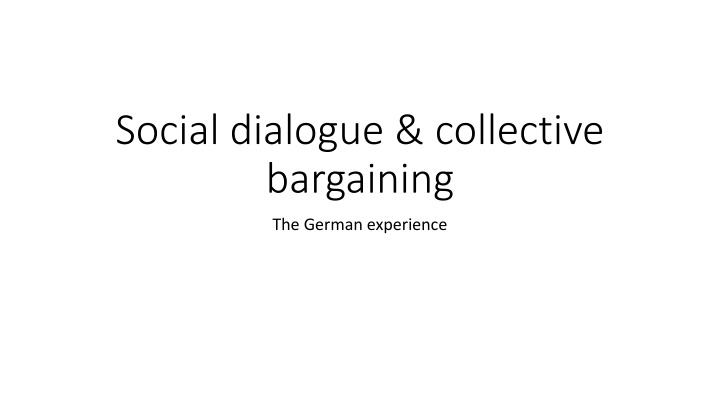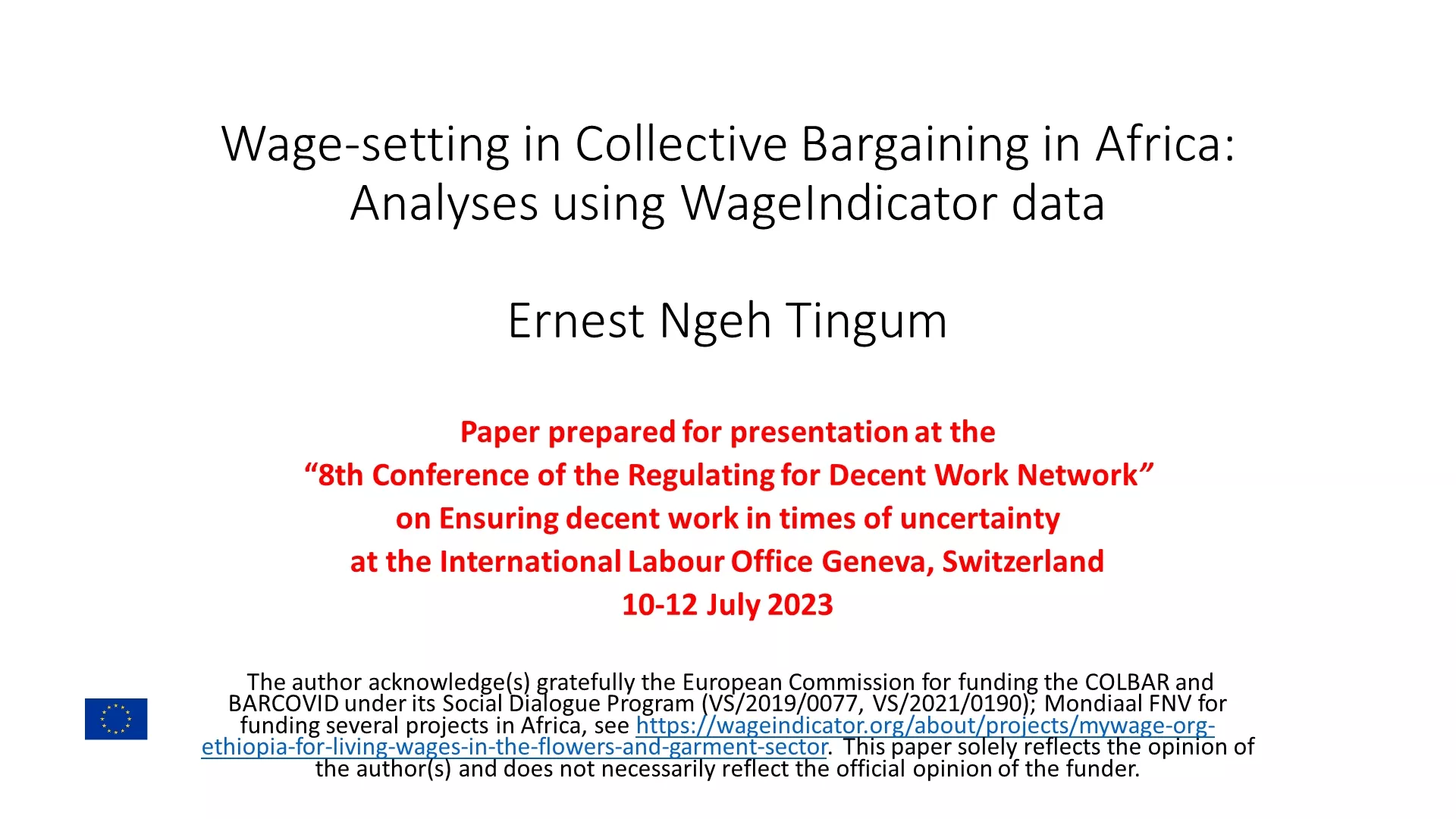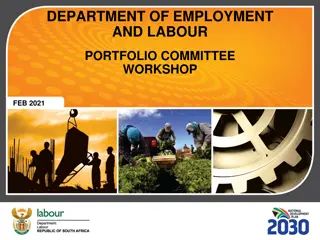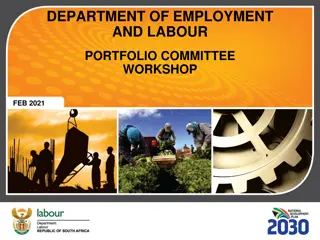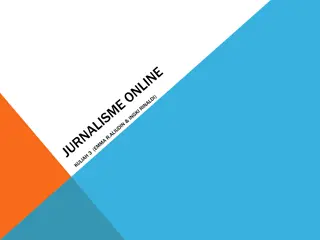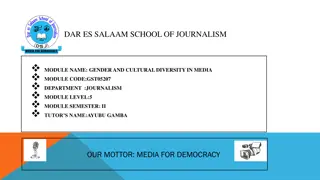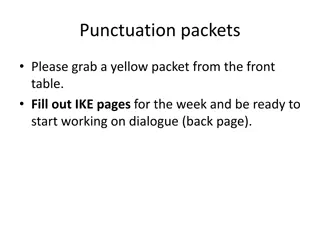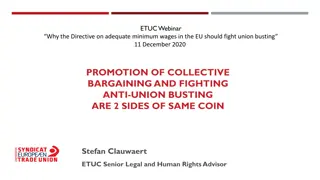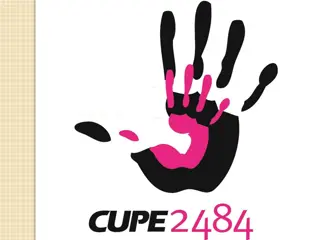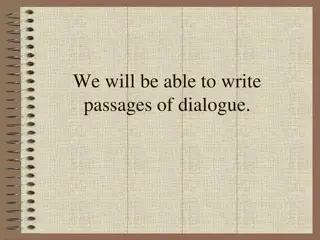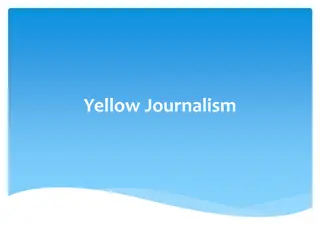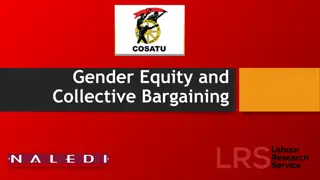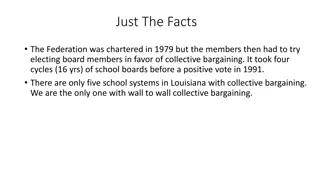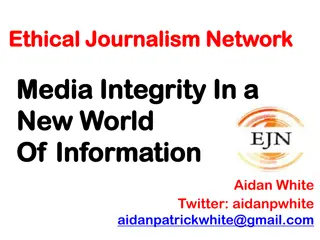The German Experience with Social Dialogue and Collective Bargaining in Journalism
Germany has a unique history with social dialogue and collective bargaining in journalism, with differing opinions on its applicability in the industry. Collective bargaining for journalists began in the 1950s, but the implementation has varied across different media sectors. While public broadcasting has embraced collective contracts, private companies have been hesitant due to concerns about job security for freelancers. Despite legal provisions, the situation highlights the complexities and challenges in reaching consensus in the journalism sector.
Download Presentation

Please find below an Image/Link to download the presentation.
The content on the website is provided AS IS for your information and personal use only. It may not be sold, licensed, or shared on other websites without obtaining consent from the author.If you encounter any issues during the download, it is possible that the publisher has removed the file from their server.
You are allowed to download the files provided on this website for personal or commercial use, subject to the condition that they are used lawfully. All files are the property of their respective owners.
The content on the website is provided AS IS for your information and personal use only. It may not be sold, licensed, or shared on other websites without obtaining consent from the author.
E N D
Presentation Transcript
Social dialogue & collective bargaining The German experience
Does social dialogue make sense in journalism? We do believe there is a spiritual connection, an inner band of unity between the publisher and the editors working with him. Therefore an editor cannot be considered to be an employee. The idea of collective bargaining does not meet the situation in journalism (Federation of publishers, in the 1950s) We want to make clear that newspapers rely heavily on freelances. They are the most valuable contributors, we need these journalists. But any kind of improvement of the collective agreement will end any acceptance of it at all. (Federation of newspaper publishers, in the 90s) Freelances are entrepreneurs (German news agency)
The situation in Germany Collective bargaining for journalists started in the 50s A law on collective bargaining for freelances similar to employees was passed in the 70s (12a Tarifvertragsgesetz) Collective bargaining resulted in collective contracts in public broadcasting The collective contract in the newspaper sector was signed, but never applied
Freelances similar to employees (Arbeitnehmer hnliche Personen) A person who earns 50% at one employer Or if this person is an artist or journalist, 30% Will be considered similar to employees even if this person has a freelance contract Collective bargaining is legal for these persons ( 12a Tarifvertragsgesetz)
Starting social dialogue / collective bargaining While the law is applicable to all media sectors, it is only the public broadcasting where collective bargaining and collective contracts exist Public broadcasting has to accept union acitivity and action Yet, bargaining is difficult in public broadcasting, because freelances fear for their jobs Private companies avoid at all costs any form of collective contract for freelances Freelances often will not be willing to strike in private media
Contents in collective contracts (12a) Fees for text, photography, video, audio etc. Shift payment (salary) Authors rights Sick pay Maternity pay Holiday pay Termination payment
Problems in collective contracts (12a) Persons will accept a freelance contract now because it has basic social features (rather than insist on an employment), this means employers will turn employee positions into freelance work As freelances are not considered to be employees, any labour law improvement will have no effect on this group It is impossible to negotiate a collective contract which would cover the wide are of labour law Freelances still fear sanctions from their employers, consequently they are not willing to strike The work council has no or limited competence in freelance matters No major structural improvement in freelance contracts in the last years
The right of fair fee for authors rights New law (2002) Any freelance has the right to an adequate payment for authors rights Freelancers unions may negotiate a collective contract which defines what is adequate In the newspaper sector, a contract was finally signed in 2012/2013, but in most newspaper, it never became reality In the magazine sector, negotiations still go on with no end in sight
Is there any bright future for 12a or adequate payment ? Changes in authors rights might force publishers to negotiate faster than now The right of the journalists asociation to sue publishers who do not respect the agreement might have some effect 12a is a powerless tool for unions Think of the French way any person working in the media is considered to be an employee
